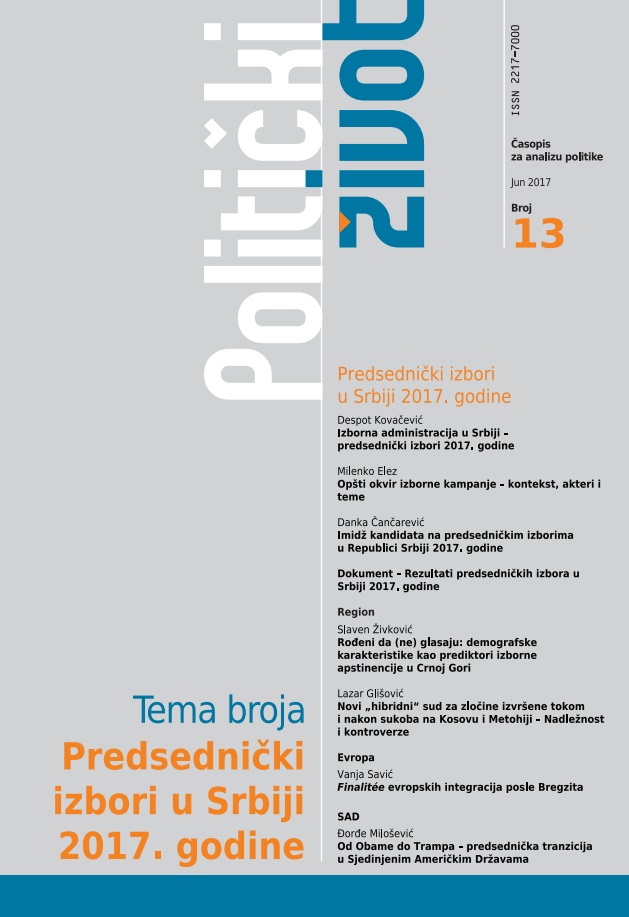Rođeni da (ne) glasaju: demografske karakteristike kao prediktori izborne apstinencije u Crnoj Gori
Born (Not) to Vote: Demographic Predictors of non-Voting in Montenegro
Author(s): Slaven ŽivkovićSubject(s): Electoral systems, Political behavior, Politics and society
Published by: Fakultet političkih nauka Univerziteta u Beogradu
Keywords: abstention; electoral participation; demographic predictors; Montenegro
Summary/Abstract: First studies about voting behaviour have almost explicitly focused their attention to examining why citizens vote as they do, or finding predictors that can explain the outcome of the vote. Development of rational choice theories, about citizen as rational individual, but also the turnout decline in almost all Western democracies, led to a raising level of interest for question – why do citizens vote at all? More precisely – why some citizens don’t vote? Empirical findings that proved that non-voters are not randomly distributed among electorate grew even bigger enigma around this issue. Voters’ mobilization has almost universally been accepted as one of the best cures for abstention. Yet, political parties and candidates, who are the only one who have the incentive to mobilize, seems to think about electoral mobilization and conversion primarily in terms of identifiable social groups. Mobilized citizens usually perceive the massage that has been addressed to the whole social group individual is member of. This paper tend to test whether in Montenegro being a member, or not being a member, of some groups in society (such as gender, age, education, geographical, national… groups) affect the lack of electoral participation. Using the data from first post-electoral survey in Montenegro (CSES) phenomenon of abstention will be examined in logistic regression model with demographic variables as predictors.
Journal: Politički život
- Issue Year: 2017
- Issue No: 13
- Page Range: 47-64
- Page Count: 18
- Language: Serbian

